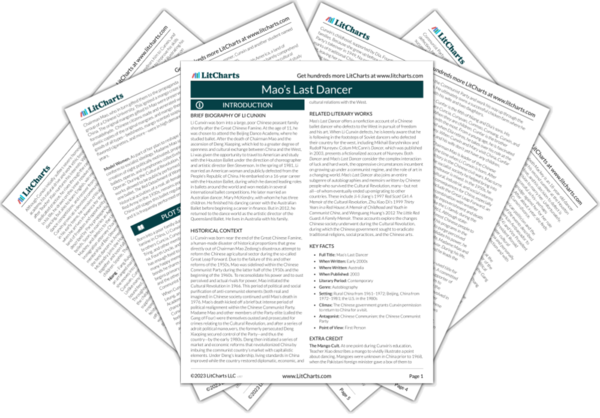One crucial element of freedom that Cunxin hasn’t yet fully considered or dealt with is that other people can be caught up in the consequences of his decision. He cannot imagine reconsidering his planned defection—he only narrowly escaped China the last time. And now that he’s truly tasted freedom—and romantic love—he can’t imagine returning to the cage of communist China. But he does worry about how his decisions affect others whom he respects and admires, like Ben Stevenson and Teacher Xiao. And in his rush to protect the people he likes, he endangers himself.
